The Impact of Elevated Emotional Intelligence at Work
The complexities of human emotions and behaviour can have an enormous impact on the workplace, corporate productivity, job satisfaction, personal and wider performance and so many more factors. Recognising the importance of emotional intelligence is becoming a much bigger and more discussed topic in business – and that’s because it impacts and benefits the wider workplace in so many different ways.
Here, we’ll take a closer look at how elevated emotional intelligence benefits the workplace and why this is so important for creating the best performance culture in any organisational environment. These benefits include:
- · Improved self-awareness
- Ability to self-regulate
- More effective communication
- Improved decision making
- Freedom of choice
- Example for your team
- Better overall leadership skills
What Is Emotional Intelligence?
Emotional intelligence became a hot topic thanks to the work of Daniel Goleman. A world-renown psychologist who frequently lectures on emotional intelligence and best-selling author of, Emotional Intelligence and Social Intelligence: The New Science of Human Relationship, Goleman tapped into the importance of EI and the effect of EI in the corporate world.
In short, EI is the ability to recognise, understand and manage emotions – in yourself and others. The power of harnessing your emotional intelligence can support you in navigating the complexities of the world around you in a more positive way, and at work, become more influential, productive, effective and reach performance heights you didn’t know were possible.
As a leader in business, strengthening and elevating your emotional intelligence is crucial when managing and leading both small and large teams. Allowing you to control and choose your emotional state and reactions and respond in the most effective way possible to those around you – in all circumstances.
How Does Emotional Intelligence Benefit the Workplace?
Understanding the benefits of emotional intelligence in the workplace will propel you further in your journey of improved EI. From better communication within your team during high pressure situations or conflicts to improved performance motivation and uplifted overall leadership skills, a focus on emotional intelligence at work has never been as important.
Emotional Intelligence Leads to Self-Awareness
One of the most important components of emotional intelligence is self-awareness. While this can mean many things on different levels, self-awareness is an understanding of our own emotions and emotional triggers and an ability to understand how we are viewed by others when reacting and behaving.
Having a high level of self-awareness allows us to tap into our strengths in a unique and powerful way while also being boldly aware of our weaknesses. This awareness creates a motivation to work towards improving weaknesses and becoming more open to external feedback, which then links back to personal improvement and development.
Improved Ability to Self-Regulate
Self-regulation is a crucial skill for any leader looking to run large organisations. This ability to control emotional reactions and adjust behaviour accordingly leads to more positive outcomes in challenging or conflicting situations.
Being able to self-regulate ensures your personal emotions are not able to interfere or conflict with the workplace and allows you to navigate difficult situations more calmly for more efficient solutions. Dealing with high pressure environments is common as a leader of large teams and being able to control your own emotions and reactions allows you to present more professionally and create respect within the team you lead.
Better Communication within the Workplace
Improving emotional intelligence in the workplace is also key to maximising the efficiency and productivity of your team’s communication. From understanding non-verbal cues, which can enable you to fix issues before they become larger problems to building a connection between team members on the same EI journey, a higher EQ creates more positive interactions, both in general and through specific situations.
Elevated emotional intelligence is also linked to having a more open mindset due to being able to display empathy. This allows you to better receive and translate information without creating your own ‘meaning’. In turn, this leads to more efficient communication whether that’s one-on-one or in larger team groups.
Improved Decision-Making
When we are able to adapt our behaviour and reactions based on an understanding of other’s emotions, it becomes easier to make more effective and efficient decisions as a leader. These improved decision-making skills ensure to balance the needs of the organisation and its shareholders with the people within the team, which in turn garners a better working environment for all involved.
Elevated EI Leads to Freedom of Choice
When leaders have an elevated level of emotional intelligence, they are able to choose their emotional reactions and behaviour based on each situation and circumstance. In this ‘choice’ lies the true power of great leadership, avoiding impulsive interactions and decision-making and creating a more impactful, thoughtful style of leading.
Best Example for Your Team
Displaying the components of emotional intelligence can be contagious. Leading with self-awareness, empathy, understanding, self-regulation and improved general social skills encourages the people you influence directly at work to display similarly elevated levels of emotional intelligence. Leading in this way is more motivating for your colleagues and your team and sets you apart as a high-level leader with a raised level of trust within your people.
Improved Overall Leadership Skills
Not only does emotional intelligence benefit the workplace as a whole, but it also allows you to grow and thrive as a leader, personally. People with elevated EI have better working relationships, in general, they understand their role and influence over their team and their people’s roles and they have a better understanding of how they can help others to improve performance.
Emotional intelligence plays an important role within any organisation from HR to C-Suite and has never been more important than within our current economy. If you’re considering taking on an emotional intelligence uplift journey, get in touch with the Luminary Mindset team and we can discuss the best coaching options for you and your organisation.








